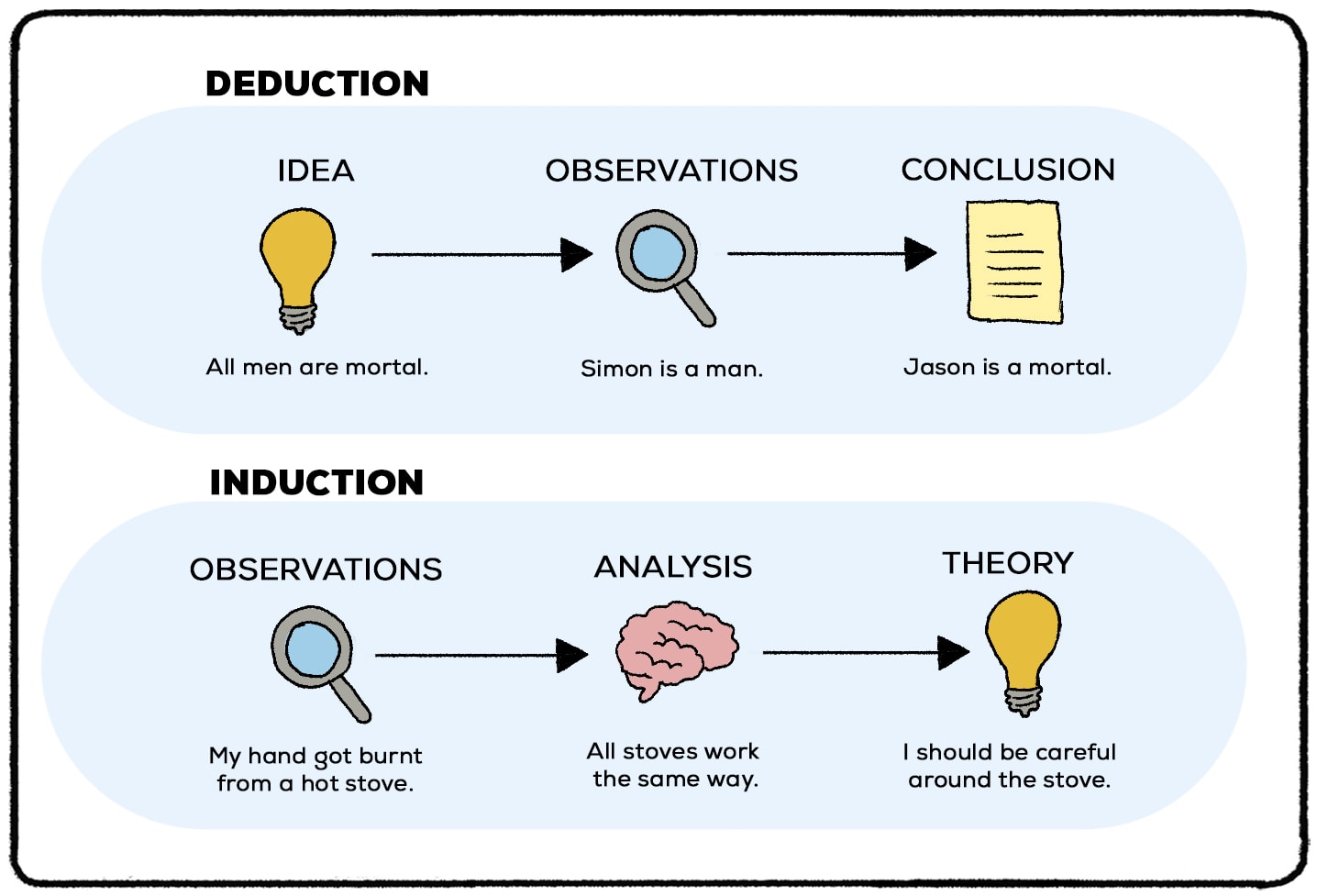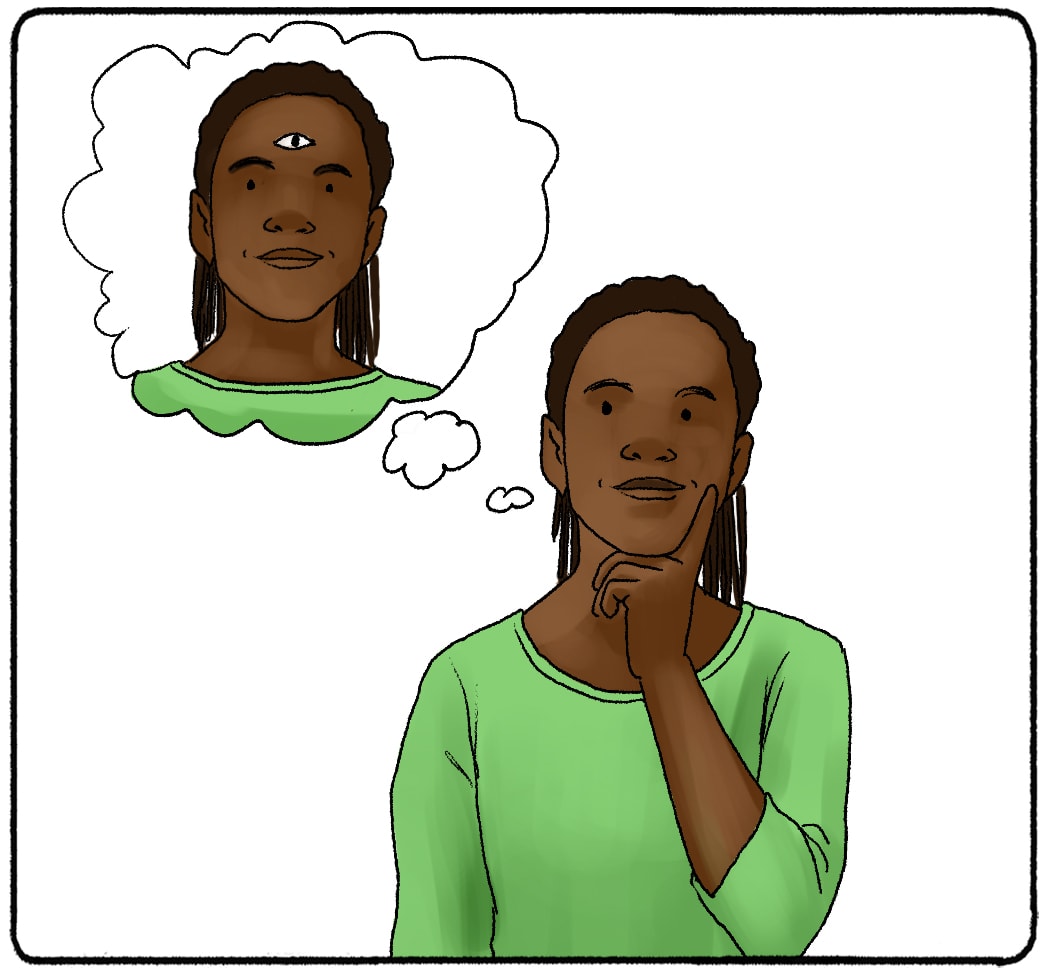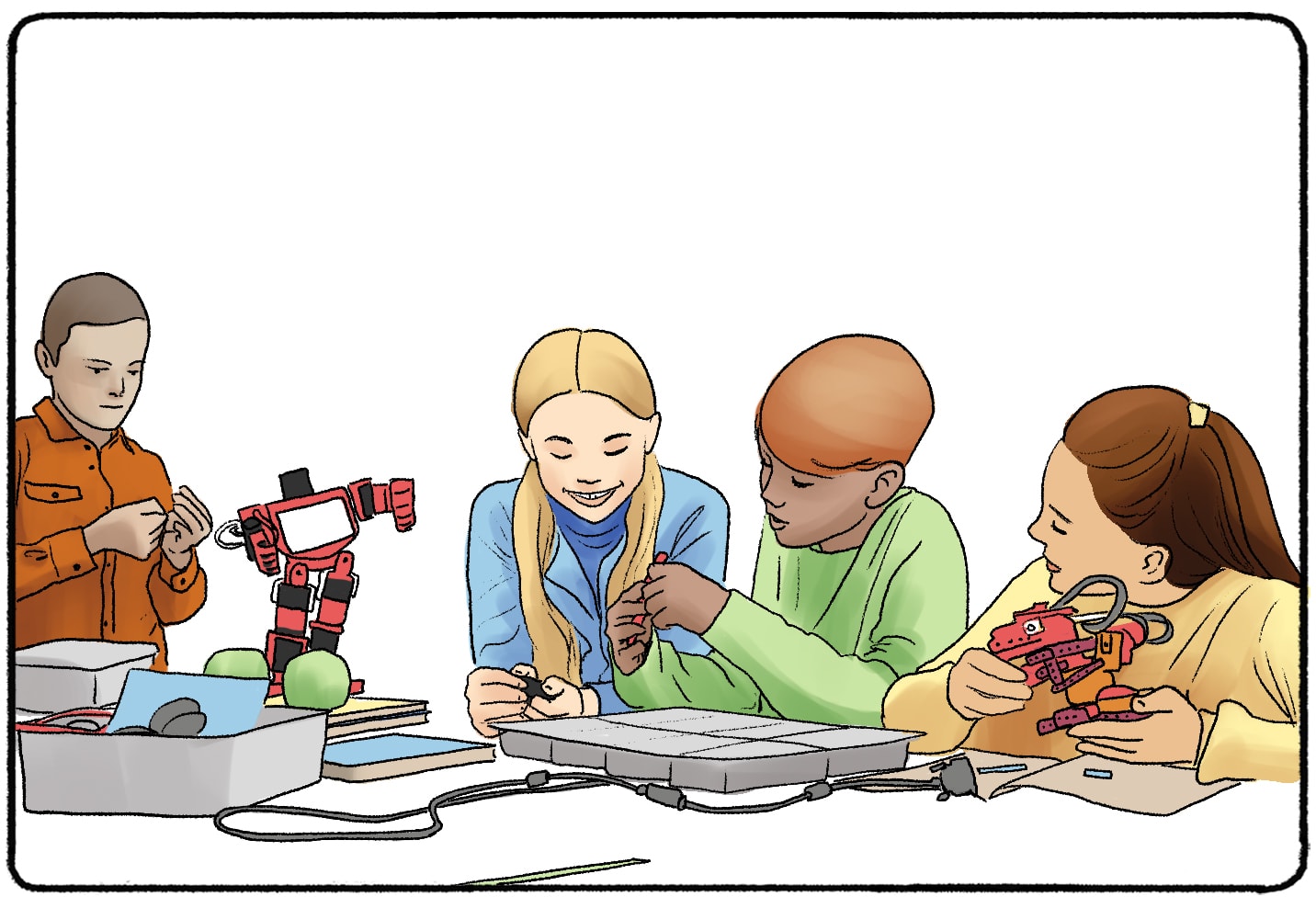Would you say that you think abstractly? Do you think about the “bigger picture?” I don’t mean thinking about your life 10 years in the future. I mean thinking about the purpose of existence and why humans have evolved as we have. We’re not tackling all of these questions today, but we will talk about how we came to ask them and how we answer them.
Children in elementary or middle school typically do not possess these skills. Until children reach the formal operational stage in Jean Piaget's Theory of Cognitive Development, they go through three concrete development stages that only allow them to think concretely. They can follow the rules of how the world works but are limited by these concrete concepts.
What Is the Formal Operational Stage?
Once children reach adolescence, they enter the Formal Operational Stage. This is the last stage in Piaget’s Theory of Cognitive Development. The Formal Operational Stage doesn’t end - there are ways that you can heighten your abstract problem-solving skills from age 12 to age 112!
Age Range
The formal operational stage begins between around 11-12. Children are usually in grade school around this time. They can take on more responsibilities than they did in earlier stages of development, but they are still considered young children. Health organizations still categorize ages 11 and 12 as "middle childhood."
Entering the Formal Operational Stage
Children ages 11 and 12 have just finished the concrete operational stage. This stage lasts from ages 6-11. By the time a child enters the formal operational stage, they should be able to:
- Arrange items in a logical order
- Build friendships based on empathy
- Understand that 5mL of water in one glass is the same amount as 5mL of water in a separate glass
- Recognize that a ball of pizza dough is the same as flattened pizza dough
Playing games and doing science experiments with children is much more fun at this age. They understand so much more!
Examples
During this stage, individuals develop the ability to think abstractly, reason logically, and solve problems in a systematic manner. Here are 14 examples of behaviors and thought processes that are characteristic of the formal operational stage:
- Hypothetical Thinking: The ability to consider hypothetical situations and possibilities. For instance, a teenager might ponder, "What would happen if the sun never rose?"
- Abstract Thought: Thinking about concepts not directly tied to concrete experiences, such as justice, love, or morality.
- Systematic Problem Solving: When faced with a problem, individuals can systematically test potential solutions. For example, if a science experiment doesn't produce the expected result, a student might change one variable at a time to determine which one is responsible.
- Metacognition: The ability to think about one's own thought processes. Students might reflect on how they study best or recognize when they do not understand a concept.
- Moral Reasoning: Moving beyond black-and-white thinking to consider the nuances of moral dilemmas. For instance, understanding that stealing is generally wrong but pondering whether it's justified if someone is stealing food to feed their starving family.
- Scientific Reasoning: Formulating hypotheses and conducting experiments in a methodical manner to test them.
- Understanding Sarcasm and Metaphors: Recognizing that the phrase "It's raining cats and dogs" doesn't mean animals are falling from the sky.
- Planning for the Future: Considering future possibilities and making plans based on them, such as choosing college courses based on a desired future career.
- Evaluating the Quality of Information: Recognizing the difference between opinion and fact or understanding that just because something is on the internet doesn't make it true.
- Logical Thought: Thinking logically and methodically, even about abstract concepts. For example, if all roses are flowers and some flowers fade quickly, then some roses fade quickly.
- Considering Multiple Perspectives: Understanding that others might have a different point of view and trying to see things from their perspective.
- Propositional Thought: Understanding that a statement can be logical based solely on the information provided, even if it's untrue. For instance, "If all dogs can fly and Fido is a dog, then Fido can fly" is logically sound, even though we know dogs can't fly.
- Complex Classification: Classifying objects based on multiple characteristics. For example, organizing books by both genre and author.
- Understanding Abstract Relationships: Recognizing relationships like "If A is greater than B, and B is greater than C, then A is greater than C."
What Characterizes the Formal Operational Stage?
Four specific skills are signs that a child is in the formal operational stage:
- Deductive Reasoning
- Abstract Thought
- Problem-Solving
- Metacognition
Deductive Reasoning
The child learns to apply logic to certain situations during the Concrete Operational Stage. But they are limited to inductive reasoning. In the Formal Operational Stage, they start to learn (and learn the limits of) deductive reasoning.
Inductive reasoning uses observations to make a conclusion. Say a student has six teachers throughout their life, all strict. They are likely to conclude that all teachers are strict. They may find that later in life, they will change their conclusion, but until they observe a teacher who is not strict, this is the conclusion they will come to.
Deductive reasoning works differently. It uses facts and lessons to create a conclusion. The child will be presented with two facts:
“All teachers are strict.”
“Mr. Johnson is a teacher.”
Using deductive reasoning, the child can conclude that Mr. Johnson is strict.

Abstract Thought
Throughout the child’s development, they start to expand their world. In the sensorimotor stage, their world consists of only what is directly in front of them. If something is out of sight or earshot, it no longer exists.
As they develop object permanence, they understand that the world exists beyond what they can physically see, hear, or touch. In the concrete operational stage, children begin to apply the rules of logic to things and rules they know exist.
In this final stage, they begin to expand their worldview further. They begin to develop abstract thought. They can apply logic to situations that don’t follow the rules of the physical world.
Piaget's Third Eye Question: The Difference Between Concrete Operational and Formal Operational Stages

One of the ways that Piaget tested this skill was to ask the children questions. Here’s an example of a question that Piaget asked children:
“If you had a third eye, where would you put it?”
Children in the Concrete Operational Stage were limited to answering that they would put the eye on their forehead or face. They were typically only exposed to animals and humans with eyes on their faces. But children in the Formal Operational Stage were likelier to branch out and think of more useful and abstract answers. They considered putting the eye on their hand, back, or elsewhere where it would serve a greater purpose.
Problem-Solving
These skills make solving problems a whole lot easier. Children can only solve problems through trial and error in the Concrete Operational Stage and earlier stages. As they enter the Formal Operational Stage, they can look back at the problem, use past experience and reasoning to form a hypothesis, and test out what they believe will happen. This can save them a lot of time.

To determine when children had developed these skills, Piaget used another testing method. He gave them a scale with a set of weights and asked them to balance the scale with the weights. But simply putting the same amount of weight on each side wasn’t enough. The children had to determine that the distance between the weights and the scale's center also impacted the balance.
Children under the age of 10 heavily struggled with the task because they could not understand the concept of balance (if they were in the Preoperational Stage) or could not grasp that the center of balance is also important. (These children were in the early stages of the Concrete Operational Stage.) At age 10, the children could solve the problem, but at a much slower pace due to their process of trial and error.
It wasn’t until age 11 or 12 that children could look at the problem from a distance and use logic to use both the distance and size of the weights to balance the scale.
MetaCognition
Not all of these thought processes are perfect the first time around. You know that I know that, and children in the Formal Operational Stage are just starting to discover that. By using MetaCognition, they are more likely to assess their thinking and transform it into a more effective form of problem-solving.
MetaCognition is simply “thinking about thinking.” It is the ability to run through your own thought process, figure out how you developed that process, and maybe unwind some things that aren’t logical or can be disproven. This can help you “rebuild” your thought process as if it were building blocks, creating a more solid structure for you to solve problems.
Piaget did not actually coin this term while developing his theory on the Formal Operational Stage. John Flavell, an American psychologist, actually proposed the theory on MetaCognition in the late 1970s.
We’ve seen throughout these videos that the Theory of Cognitive Development has continued to grow and change with additional input and studies. Our minds can also change their thought processes and begin to notice imperfections and flawed logic as they come up. But this often requires going back and asking yourself how you built certain thought processes and where you could have made flawed conclusions.
How to Support a Child in the Formal Operational Stage
Children in the formal operational stage (typically 12 years and older) begin thinking more abstractly and logically, engaging in hypothetical reasoning and considering multiple variables in problem-solving. To best support and nurture their cognitive development outside of school, consider these activity suggestions:
- Play Strategic Board Games: Introduce games that require planning, strategizing, and critical thinking. Games like chess, Risk, Settlers of Catan, and Ticket to Ride can enhance their deductive reasoning and promote patience. These games also often require players to predict opponents' moves, honing their skills in understanding perspectives.
- Engage in Thought Experiments: Stimulate abstract thinking by posing hypothetical questions. Asking imaginative yet thought-provoking questions like, "If you could invent a new school subject, what would it be and why?" or "How would our lives change if we had no electricity for a year?" can spark interesting discussions and foster creativity.
- Encourage Scientific Experiments: Let them set up a mini-lab at home. Whether it's a simple vinegar and baking soda reaction or a more complex examination of plant growth under different conditions, hands-on experiments can solidify their understanding of cause and effect.
- Delve into Philosophy and Ethics: Discuss moral dilemmas or philosophical conundrums suitable for their age. Questions like, "Is it ever okay to lie?" or "What makes something 'right' or 'wrong'?" can challenge them to consider multiple viewpoints and refine their moral reasoning.
- Read and Analyze Stories Together: Choose books or movies with deeper themes or complex characters. Discuss the motives, the plot's implications, or any symbolism. This improves their comprehension skills and teaches them to think critically about media.
- Involve Them in Real-Life Problem-Solving: Whether planning a family trip, budgeting for a big purchase, or deciding on the best route for a journey, including them in the process can provide practical applications for their developing logical reasoning skills.
- Respect and Respond to Their Queries: Children at this stage are brimming with questions, many of which can be profound or reflective. When they approach you with a query, respond with patience and logic. If you don't know the answer, consider researching it together. This collaborative approach provides them with information and models a proactive attitude toward learning.
By actively engaging with children in these ways, parents and caregivers can provide invaluable support as they navigate the challenges and opportunities of the formal operational stage.
Formal Operational Stage vs. Other Stages of Development
Jean Piaget is not the only psychologist to create stages of development. Other psychologists have offered their theories on how a child develops social skills and how their experiences during each stage impact their relationships and behavior. Some theories, like Erikson's stages of psychosocial development, last for the span of the person's life. Other theories, like Piaget's, only cover childhood and early adolescence. When we compare Piaget's theory to other theories, we see some overlap and other perspectives on what makes a child the person they grow up to be.
At ages 11-12, a child exits the Industry vs. Inferiority stage and enters the Identity vs. Role Confusion stage. The child should be aware that they are responsible for their own decisions and how they affect others. They also start to see that they are different from other children. They will successfully exit these stages if they feel confident that they can advocate for themselves and live the way they want. Otherwise, they may develop insecurities. Erikson coined the term "identity crisis." This crisis could take place in the identity vs. role confusion stage!
Freud's Stages of Psychosexual Development
During the ages of 11-12, a child is in the latent stage of psychosexual development and may be entering the genital stage. The change in stages all depends on when the child goes through puberty. Freud's controversial stages focused on a child's erogenous zones and sexual interests. As the child discovers sexual interests in the latent stage, they must learn to channel their energy into intellectual activities. The child can form healthy relationships by letting the superego tame the id. In the genital stage, teenagers and adults learn to explore their maturing sexual interests.
Which Theory is "Right?"
All these theories can play out simultaneously, but remember, these are just theories. Some ideas, like Freud's Oedipal Complex that occurred in earlier stages of development, have been discredited and largely rejected by today's psychologists. We continue to learn about Jean Piaget, Erik Erikson, and other psychologists to understand how psychology developed into the field we know today.
Thanks for checking out these pages on the Theory of Cognitive Development! I hope these will allow you to look at your own thinking and build a stronger foundation for solving problems and understanding the world around you - no matter how old you are!
Piaget's Influence on Modern Educational Practices
Jean Piaget's groundbreaking theories on cognitive development have left an indelible mark on the realm of education. Even today, educators worldwide employ strategies rooted in Piaget's insights. Here's how Piaget’s theories continue to shape contemporary educational practices:
- Active Learning: Piaget emphasized the importance of active learning. He believed children learn best when interacting with their environment and manipulating objects. This belief has shifted from passive rote memorization to hands-on, experiential learning. Schools often incorporate field trips, lab experiments, and interactive activities to facilitate this.
- Developmentally Appropriate Practices: Recognizing that children progress through specific stages of cognitive development, educators design curricula tailored to these stages. For instance, in the pre-operational stage (2-7 years), children benefit from using concrete objects and visuals. Meanwhile, older children in the formal operational stage (12 years and up) are more equipped for abstract thinking and can engage in more complex problem-solving tasks.
- Focus on the Process, Not Just the Outcome: Piaget believed that the process of thinking and the journey of arriving at an answer are just as necessary as the answer itself. This philosophy has encouraged educators to value and assess how students approach problems, not just the correctness of their answers.
- Peer Interaction: Piaget felt that peer interaction is crucial for cognitive development. He observed that children often learn best when discussing, debating, and collaborating with classmates. Group work, cooperative learning, and classroom discussions are now staples in many classrooms, promoting social interaction as a valuable learning tool.
- Incorporating Real-life Situations: To make learning meaningful, Piaget suggested relating it to real-life situations. This has led to problem-based learning and the inclusion of real-world issues in the curriculum, ensuring that students see the relevance and applicability of their learning.
- Role of the Teacher: In line with Piaget's theories, the teacher's role has evolved from the traditional "sage on the stage" to more of a "guide on the side." Teachers now often act as facilitators, providing resources, posing guiding questions, and helping students make their discoveries.
- Assessment Practices: Piaget's emphasis on stages of cognitive development has led to more nuanced and stage-sensitive assessment methods. Teachers are more attuned to the developmental readiness of their students, ensuring that assessments are appropriate for their cognitive level.
- Constructivist Classrooms: Stemming from Piaget's idea that learners construct knowledge based on their experiences, many modern classrooms adopt a constructivist approach. Here, students are encouraged to construct their understanding and knowledge of the world by experiencing and reflecting on those experiences.
While educational practices have evolved and integrated various theories, Piaget's influence is unmistakably prevalent. His focus on the child as an active learner, the stages of cognitive development, and the significance of hands-on, relevant learning continues to shape how education is delivered in the 21st century.
